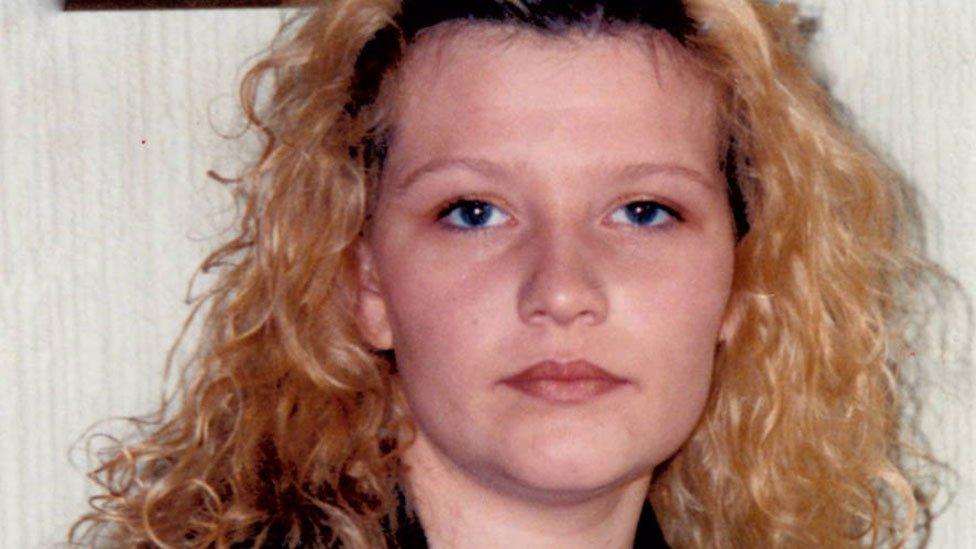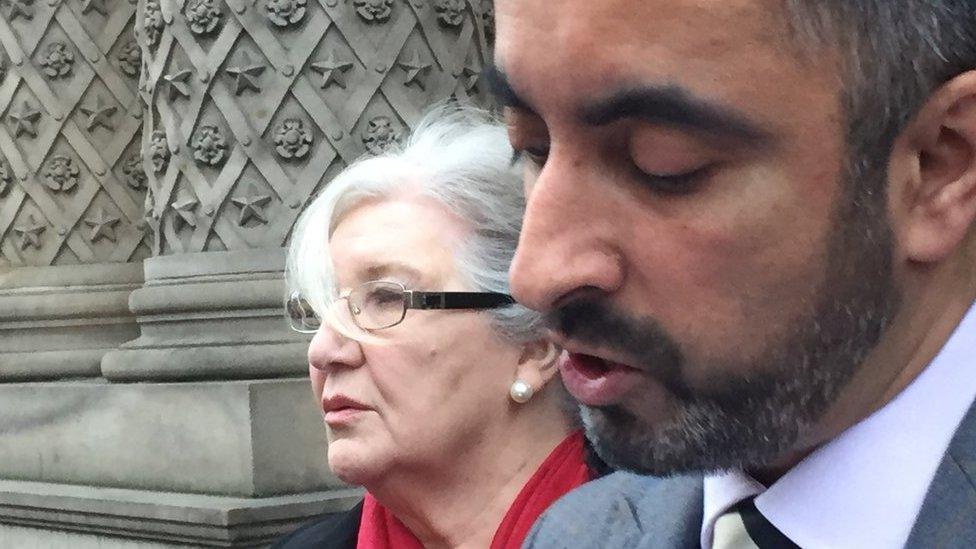Emma Caldwell: Police accused of gross misconduct
- Published

Emma Caldwell was discovered dead in woods near Biggar, South Lanarkshire, in May 2005
Police Scotland officers are under investigation for gross misconduct for their response to concerns raised about the Emma Caldwell murder inquiry.
The officers were found to have obtained communications data without judicial permission while trying to identify a journalist's sources.
The Police Service of Northern Ireland is carrying out the probe.
Ms Caldwell was working as a prostitute when her body was found in woods in Biggar, Lanarkshire in May 2005.
Police Scotland provided an update on the independent investigations into its Counter Corruption Unit in a paper submitted to Holyrood's Justice Sub-Committee on Policing.
The PSNI investigation, which involves a total of seven Police Scotland officers, is expected to finish soon.
It follows a separate misconduct investigation by Durham Constabulary, which was commissioned in July 2016.
Spying regulations broken
The paper states: "The [Durham Constabulary] inquiry concluded in May 2017 with a detailed report received by Police Scotland.
"As a consequence of the detail contained within this report, it was assessed as appropriate to progress a conduct investigation and, as such, the PSNI undertook a gross misconduct investigation which is ongoing at this time.
"Seven serving officers are the subject of this investigation, which is anticipated to conclude in the coming weeks."
MSPs heard the PSNI report is expected to be published next month, along with a redacted version of the report by Durham Constabulary.
The sub-committee was told the officers complained about - and the six people who had complained about their conduct - have already seen the report.
Ch Supt Alan Spiers told MSPs only personal information relating to the officers being investigated was being redacted.
He said: "It is a very transparent process.
"It will be obvious where the redactions have taken place."
The Interception of Communications Commissioner ruled in November 2015 that officers had broken new spying regulations by obtaining communications data without permission on five occasions.
One person's phone records were obtained illicitly for more than 30 days.
Officers had been attempting to find out how information about the investigation into the murder of Ms Caldwell, 27, had appeared in the media.
Sir Stanley Burton said the "failures" by police "could properly be seen as reckless".
In April detectives announced they were re-examining the area where Ms Caldwell's body was found.
Officers also revealed a potential new sighting in Glasgow on the last day she was seen alive.
And in June officers said they had uncovered "several items" including women's clothing in the woodland search.

Lawyer Aamer Anwar issued a statement on behalf of the family of Emma Caldwell
The developments came after the Lord Advocate told Police Scotland to reinvestigate her murder in May 2015.
But the family said it felt let down by the original investigation, which had failed to bring Ms Caldwell's killer to justice.
After the Committee hearing Ms Caldwell's family released a statement through their lawyer Aamer Anwar.
It said: "There is real anger and shock that Police Scotland should choose to use Parliament to blurt out such information, thus compounding the agony of the Caldwell family.
"Emma's family have always felt a deep sense of betrayal at the hands of the first police inquiry team.
"Sadly, the CCU always appeared more interested in chasing journalists and law-abiding officers than those who let Emma's killer escape justice.
"However, the first priority for Emma's family remains the new murder inquiry which 12 years on has given them hope."
Mr Anwar also called for the CCU, which was changed and reorganised as the Anti-Corruption Unit last year, to be disbanded and "held to account".
- Published4 June 2017

- Published4 April 2017

- Published31 July 2016
